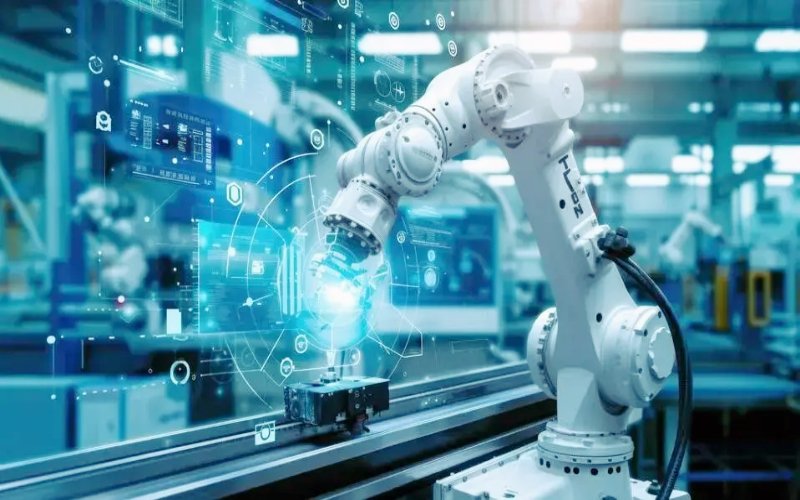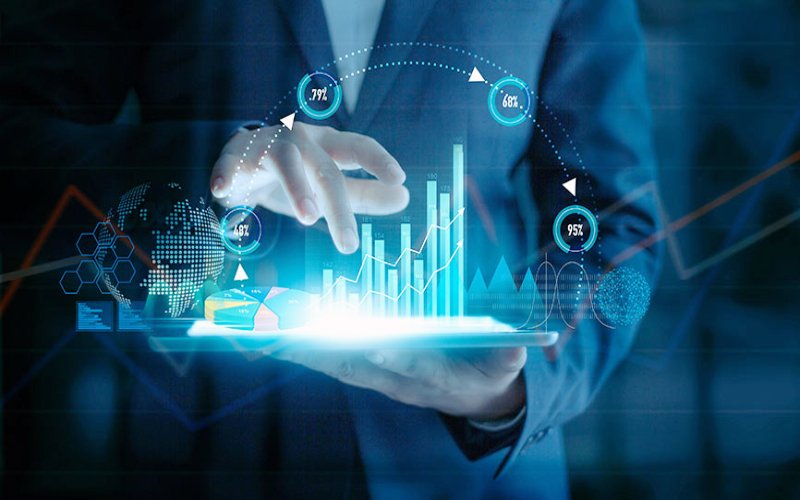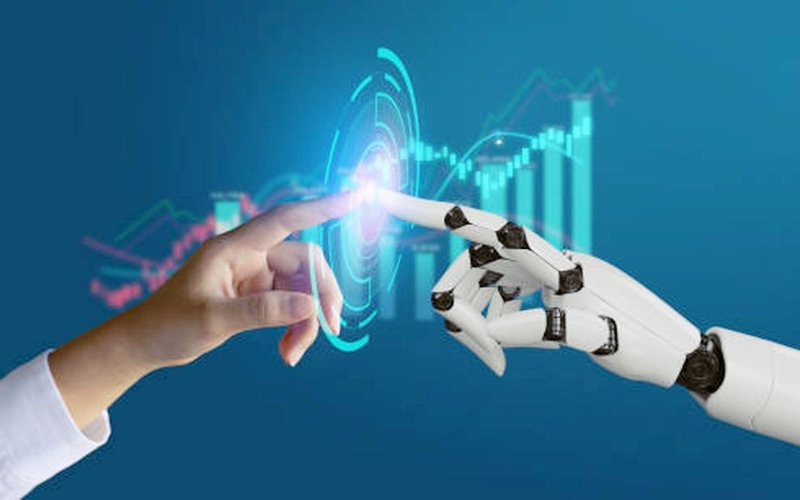Artificial Intelligence (AI) has become an integral part of modern society, shaping industries, improving efficiencies, and enhancing our daily lives. While debates around AI often emphasize ethical concerns, its positive contributions deserve equal attention. From healthcare advancements to smarter cities, AI’s role in driving progress is undeniable. Let’s explore the Positive Impacts of Artificial Intelligence on Society and how it is creating meaningful changes for a better tomorrow.
Enhancing Healthcare Services
Improved Diagnostics
AI-powered tools have revolutionized medical diagnostics by analyzing medical images, such as X-rays and MRIs, with remarkable precision. For instance, algorithms trained to detect early signs of diseases like cancer have enabled healthcare professionals to make accurate diagnoses faster than ever before. This early detection often leads to timely interventions and significantly improved patient outcomes.
Moreover, AI tools assist in identifying subtle patterns in patient data that might go unnoticed by the human eye. This capability enhances decision-making for physicians and allows for more tailored treatment plans.
Predictive Analytics in Health
AI also plays a crucial role in predicting potential health issues before they become critical. By analyzing patient history and lifestyle data, AI systems can flag risks such as heart disease or diabetes. This empowers healthcare providers to implement preventive measures, saving lives and reducing the financial strain on healthcare systems.
For example, wearable devices equipped with AI monitor vital signs in real-time, alerting users and their doctors to potential health problems long before symptoms appear.
Advancing Education and Personalized Learning
Tailored Learning Experiences
Education is another area where the Positive Impacts of Artificial Intelligence on Society are evident. Intelligent tutoring systems assess each student’s strengths and weaknesses, offering customized lessons that cater to individual learning styles. This personalized approach keeps students more engaged and helps them grasp concepts more effectively.
AI-driven platforms also enable students to learn at their own pace. This flexibility is especially beneficial for those who need extra time with specific subjects or want to advance more quickly in areas they excel.
Administrative Assistance for Educators
AI doesn’t just help students; it also supports teachers by automating routine tasks. Grading assignments, tracking attendance, and developing lesson plans can be handled efficiently by AI tools. This allows educators to focus more on teaching and mentoring, ultimately improving the overall learning environment.
Additionally, AI-driven analytics provide teachers with insights into student performance, enabling them to identify struggling students early and offer targeted support.
Transforming Transportation and Mobility
Autonomous Vehicles
AI is the driving force behind autonomous vehicles, which are designed to navigate roads safely and efficiently. Self-driving cars rely on machine learning algorithms to interpret their surroundings, detect obstacles, and make real-time decisions. These advancements promise to significantly reduce traffic accidents by eliminating human errors.
Beyond safety, autonomous vehicles can optimize fuel consumption and reduce traffic congestion, contributing to a more sustainable future.
Public Transportation Optimization
AI is also revolutionizing public transportation systems. Predictive maintenance powered by AI ensures that buses, trains, and other modes of transport run smoothly, minimizing unexpected breakdowns and delays. Furthermore, AI algorithms optimize routes and schedules based on real-time data, reducing wait times and improving passenger experiences.
Boosting Efficiency in Agriculture
Precision Farming
The Positive Impacts of Artificial Intelligence on Society extend to agriculture through precision farming. AI systems analyze data on soil conditions, weather patterns, and crop health to help farmers make informed decisions. This data-driven approach maximizes crop yields while minimizing resource usage, such as water and fertilizers.
For example, AI-enabled irrigation systems monitor moisture levels in soil and adjust water supply accordingly, conserving water and improving efficiency.
Drones in Agriculture
AI-powered drones are transforming the way farmers manage their fields. These drones monitor large areas, identify pest infestations, and assess crop health in real-time. By acting on this information quickly, farmers can protect their crops and ensure higher productivity.
Enhancing Customer Experiences
AI-Powered Chatbots
Businesses are leveraging AI chatbots to enhance customer service. These chatbots can handle customer queries instantly, offering support 24/7. Unlike traditional customer service methods, AI chatbots process large volumes of requests simultaneously, ensuring no customer has to wait.
The result is not only improved customer satisfaction but also strengthened brand loyalty. Customers value the convenience of quick and accurate responses, which AI chatbots are designed to deliver.
Predictive Retail Analytics
AI is transforming the retail sector through predictive analytics. By analyzing customer behavior and purchase history, AI systems can forecast inventory needs, ensuring that products are always available when customers need them. This minimizes waste and enhances the overall shopping experience.
Additionally, personalized recommendations powered by AI make shopping more convenient for customers, guiding them to products they’re most likely to appreciate.
Promoting Environmental Sustainability
Smarter Energy Management
AI is playing a pivotal role in reducing energy consumption. Smart systems powered by AI optimize the use of heating, cooling, and lighting in buildings, minimizing waste and lowering energy bills. For example, smart thermostats learn user preferences and adjust settings automatically, creating a balance between comfort and efficiency.
On a larger scale, AI is enhancing the functionality of smart grids. These grids balance energy supply and demand in real-time, improving reliability and reducing overall energy wastage.
Conservation Efforts
AI is aiding conservationists in protecting wildlife and preserving biodiversity. Sensors equipped with AI track wildlife populations, monitor habitats, and detect illegal activities like poaching. The data collected helps researchers implement effective strategies to protect endangered species and their ecosystems.
Enabling Smarter Cities
Efficient Urban Planning
AI is transforming urban environments into smarter, more livable spaces. Through data analysis, AI tools can identify traffic congestion patterns, optimize public transportation networks, and even propose city layouts that accommodate future growth. These capabilities help cities function more efficiently, reducing commuting times and improving residents’ overall quality of life.
Improved Public Safety
AI also contributes to public safety through surveillance and crime prevention. Smart surveillance systems equipped with AI can monitor public areas, detect unusual behavior, and alert authorities to potential threats. These systems work around the clock, enhancing security while minimizing human error.
Advancing Scientific Research
Accelerating Discoveries
AI is revolutionizing the way scientists approach complex problems. From drug discovery to climate modeling, AI systems analyze vast datasets at speeds impossible for humans. This accelerates breakthroughs and enables researchers to explore new frontiers in their fields.
Collaboration Across Disciplines
AI fosters collaboration between disciplines by providing a common platform for data sharing and analysis. Researchers in biology, physics, and engineering can now work together more effectively, leveraging AI tools to address global challenges like climate change and energy sustainability.
Conclusion: Embracing the Positive Impacts of Artificial Intelligence on Society
The Positive Impacts of Artificial Intelligence on Society are undeniable. From healthcare to education, transportation to environmental conservation, AI is reshaping our world for the better. By leveraging AI responsibly, we can address global challenges, enhance quality of life, and build a future where technology and humanity work in harmony.
What are your thoughts on the Positive Impacts of Artificial Intelligence on Society? Are there specific examples you’ve encountered in your daily life? Let’s continue the conversation!
Also visit on techitl.com.




